I was 27 and living the dream as a pro athlete before a freak accident left me unable to move from the neck down for the rest of my life: This is my story
Nine years ago, Brad Smeele was a fit and healthy 27-year-old when a freak accident turned his life upside down.
While performing a trick during a wakeboarding competition in Florida, the New Zealand athlete crashed and ‘shattered’ his vertebrae, leaving him unable to move from his neck down for the rest of his life.
The now 36-year-old spent months in hospital as a ‘prisoner’ in his own body. He could no longer move and had to accept that he would never be able to walk again or do the things he loved.
“I woke up from these amazing dreams where I was wakeboarding again and stuff like that. Real life was a nightmare,” he told FEMAIL.
Despite the extreme physical and mental challenges the injury caused, Brad, from Auckland, has not only learned to accept his limitations, but to be truly grateful for the life he has.
Brad Smeele (pictured), 36, has overcome mental health issues after a freak accident left him paralysed
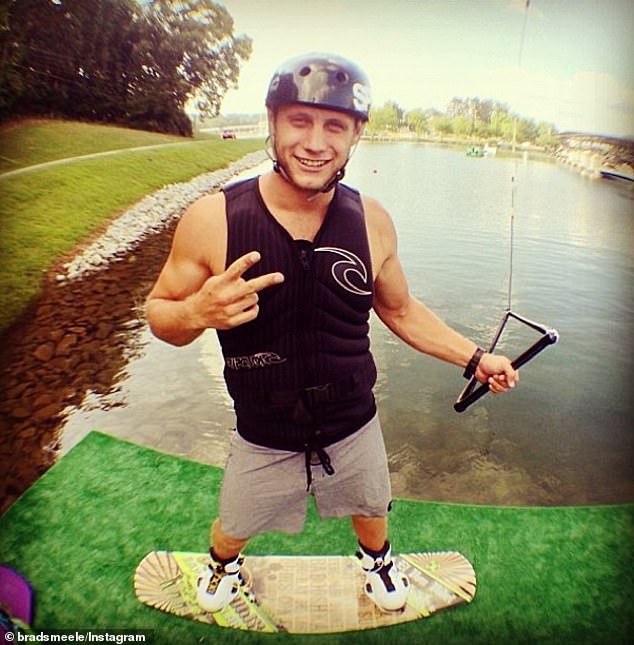
In 2014, when he was 27, Brad was a professional wakeboarder. During a training session in Florida, he crashed into a ramp while doing a somersault in the air and landing on his head
In July 2014, Brad was living “the dream,” pursuing a career as a professional wakeboarder and chasing summers around the world.
‘I loved always being outside in the summer, in the sun by the lake. Babes in bikinis and stuff like that,” he said.
‘It didn’t pay well, but it all had clear benefits. It was the lifestyle that I really fell in love with.”
While performing a double somersault in the air during a workout in Florida, Brad fell and hit his head on the ramp.
“I lowered my head and tried to make a fall to roll out, but I couldn’t get my shoulders all the way around. “I basically pushed my head into my chest and shattered my C4 vertebrae,” he recalled.
‘I was unconscious for a while, face down in the water. My friends got to me and managed to sit me up and I was blue in the face, eyes wide open, unresponsive, not breathing or anything.”
Bystanders went to perform CPR on Brad before he started breathing and regained consciousness, but he couldn’t feel his body.
Paramedics were called and Brad was taken to the nearest hospital, where he underwent an MRI so doctors could assess the full extent of the damage.
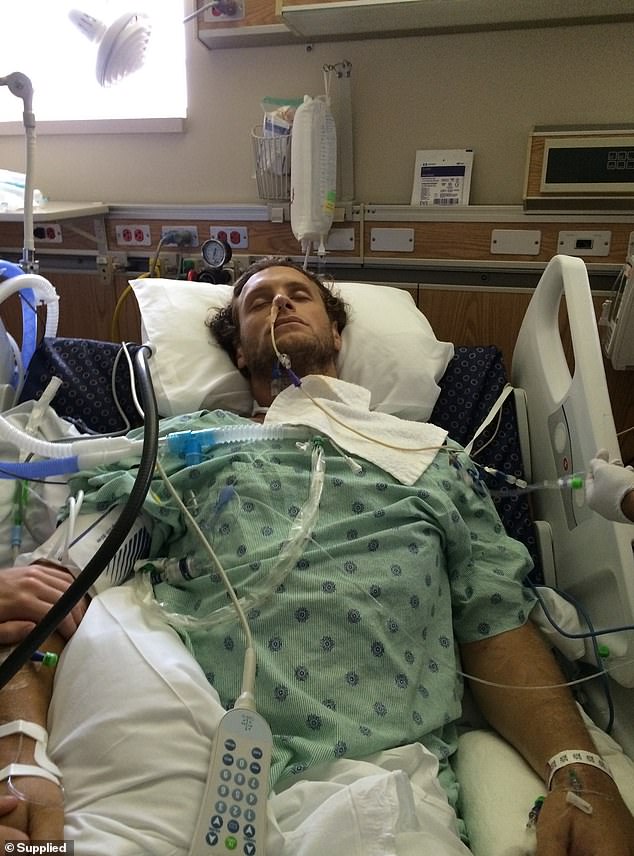
Brad was told that the accident had left him paralyzed and that he had a one to two percent chance of ever regaining the use of his upper limbs. He didn’t get a chance to walk anymore
He underwent a major nine-hour operation to ‘reassemble’ his neck with two metal rods and fourteen screws, and was put on a ventilator to help him breathe.
Brad was told that the accident had left him paralyzed and that he had a one to two percent chance of ever regaining the use of his upper limbs. There was no chance to walk anymore.
He was transferred to a facility in Atlanta, Georgia, where he remained for three months until his condition was stable enough to fly to New Zealand.
The ventilator he was on left him unable to eat, drink or speak, and Brad’s mental health suffered immensely.
‘I didn’t want to burden my mother, my family and all the people around me with what I was feeling. I didn’t want to exist anymore. “I didn’t want to continue,” he said.
‘I couldn’t tell them that and I felt guilty for months. I could barely look my mother in the eye without feeling the pain reflected back at me. I had to deal with it internally because I couldn’t talk. It felt like I was going through it all alone.”
Brad’s competitive nature eventually kicked in and he changed his mindset toward wanting to prove doctors wrong.
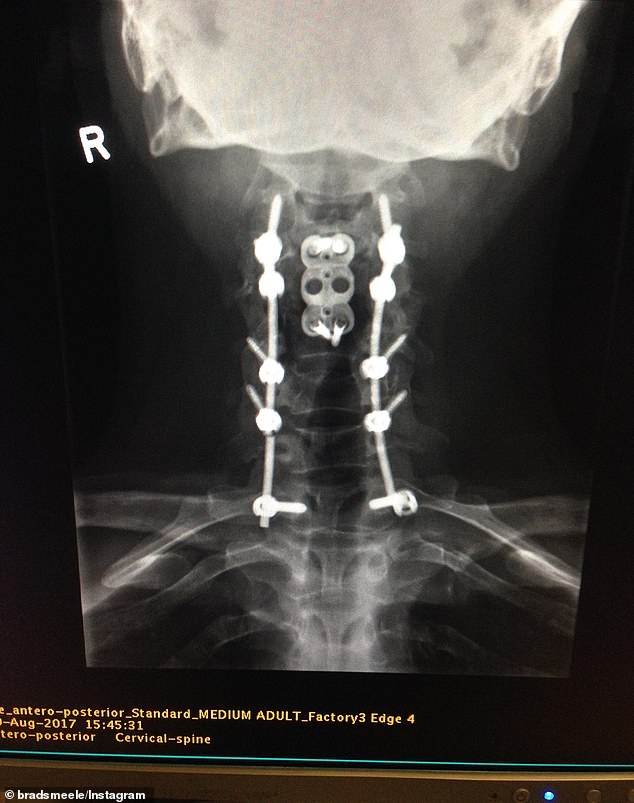
He underwent major nine-hour surgery to reassemble his neck with two metal rods and fourteen screws and was put on a ventilator to help him breathe.
After weaning the ventilator and being able to get out of bed without his blood pressure dropping, Brad was stable enough to make the trip home.
‘It was a strange feeling. It was about the same time of year that I usually come home at the end of the (wakeboarding) season, so it felt very familiar,” he said.
“When I drove around town, everything was the same except me. I felt really alienated, like I would be a burden to my friends and family and completely inadequate.”
From the airport, Brad went straight back to the hospital where he stayed for two months before going to rehab for another month and moving to a wheelchair accessible home where he was put on bed rest.
“On one hand it was good, but you come from the hospital system where I’m surrounded by other people in wheelchairs and I have all the nursing care and everything I need,” he said.
“We feel like you go into the hospital and when you come out you’re going to be better, but that just wasn’t the case for me. That’s when the big mental battles really started.’
Brad began to question his identity, which was deeply involved in his wakeboarding career.
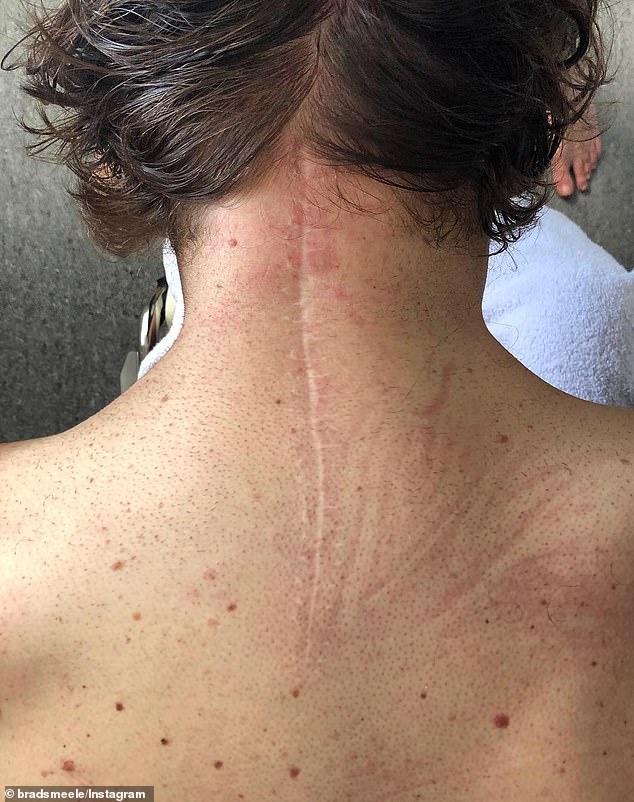
Brad spent months in the hospital as a prisoner in his own body, unable to move and come to terms with the fact that he would never walk or do the things he loved again.
‘I had a question mark over my head: who am I? Who is Brad without wakeboarding? How do I introduce myself? I always said, “Hi, I’m Brad, I’m a wakeboarder,” he said.
Three years after the accident, Brad said he hit rock bottom.
‘My focus was on physical rehabilitation. I wanted to prove the doctors wrong, that’s what I knew to do: fight and work hard and put in all that effort,” he said.
‘That was my full-time job for three years, I just went to rehabilitation and after three years I still couldn’t move my arms anymore than before. I felt like I hadn’t made any progress, I was just incredibly lost.”
While admitted to the spinal ward, he began writing about his experiences, a process he said was a “redemptive” way to process his emotions.
The decision led to him eventually releasing his autobiography, Owning It: The Ride That Changed My Life, which he wrote by typing on a screen with a stylus in his mouth.
Brad also reconnected with an old friend of his mother and kinesiologist, Susie, who he said was a “send from heaven.”
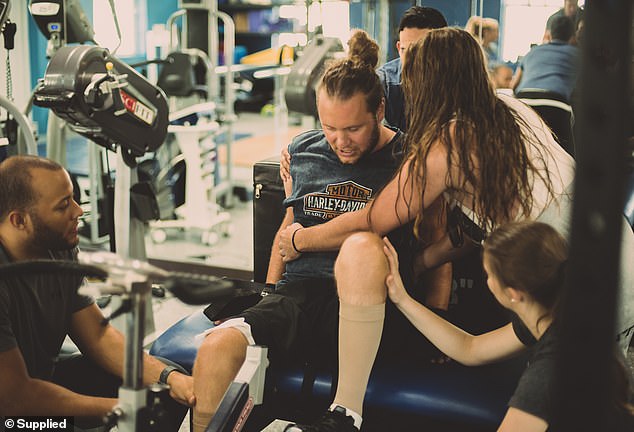
‘My focus was on physical rehabilitation. “I wanted to prove the doctors wrong, that’s what I knew how to do: fight and work hard and put all that effort into it,” he said.
Susie gave Brad the tools to process his mental pain and find a way to be grateful for the life he has.
“I would try to shift my focus from looking back at what I had and everything I’ve lost and everything I can’t do anymore, and start looking at what I can do,” he said.
‘What can I do? What opportunities are there? What am I grateful for? What do I have that I am truly grateful for?’
Brad’s health problems continue as he deals with chronic pain, intestinal problems and autonomic dysreflexia, a syndrome that causes his blood pressure to rise to dangerous levels.
However, his positivity and humor remain strong despite his challenges.
‘I like to examine my situation and joke about it. Ssomeone should really say something to offend me,” he said.
‘I’m quite a stand-up guy, I can stand up to any bull*** and I can never be late.’
Being ‘wheelchair bound’ hasn’t stopped him from getting into the dating scene either and he said he can still maintain a sex life.
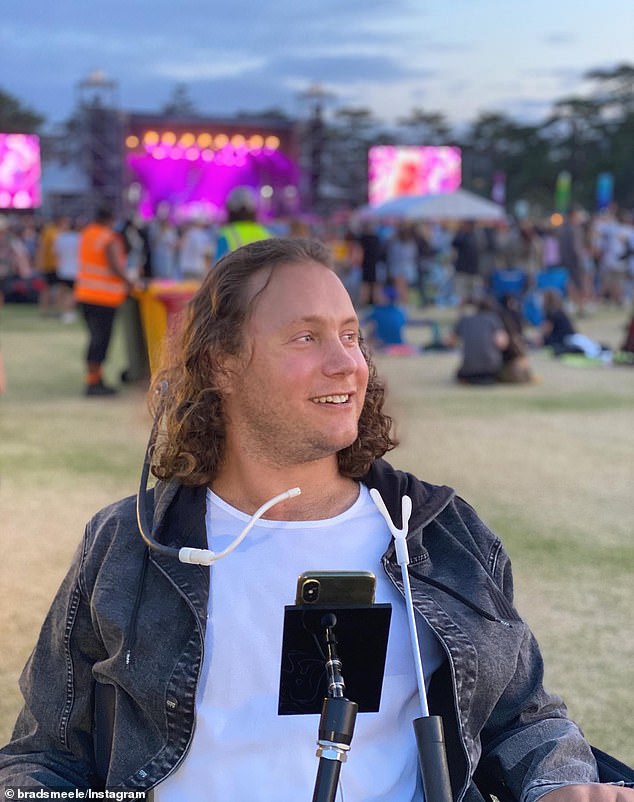
Brad uses his experience to inspire and motivate others. He regularly speaks at schools, charity and corporate events about how he found happiness after his injury
“That was one of the biggest things that really devastated me when I lost. People think I can’t have sex – you can. “I can start, but I can’t finish,” he said.
‘There’s been a bit of a dry spell in dating lately, but it wasn’t that bad in the beginning. I was surprised by the attention and interest I received.’
Brad uses his experience to inspire and motivate others. He regularly speaks at schools, charity and corporate events about how he found happiness after his injury.
One of his biggest lessons over the past nine years was not to compare yourself to others, regardless of their situation.
‘Right now the culture of comparison, especially on social media, is rampant. Early on, I made myself feel a certain way about myself based on who I was looking at,” he said.
“I could look at someone with an injury at a lower level than me who can move their arms and I’d trade places, but you never know what’s going on in that person’s life.”
‘It is an illusion to think that we can just trade places and think that everything will get better. Instead of making comparisons, it’s about gaining inspiration.’
